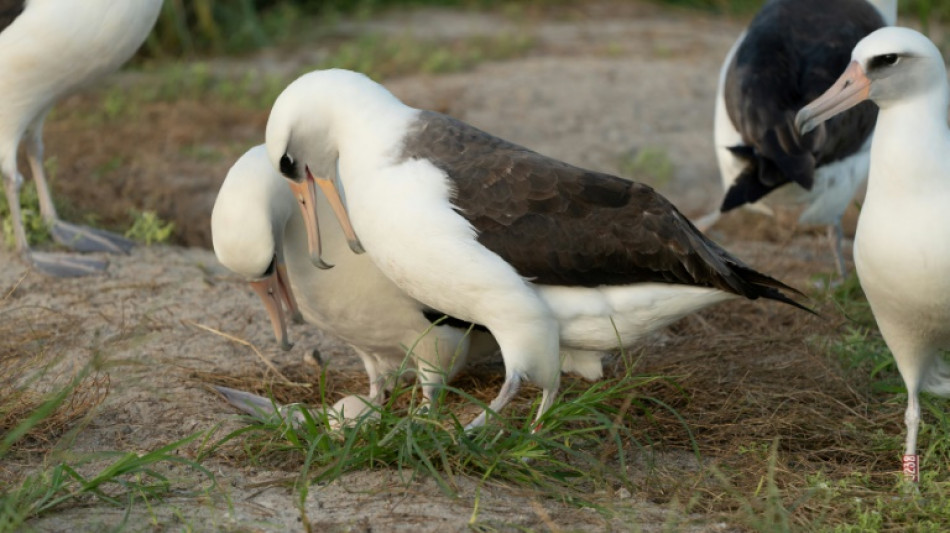

World's oldest known wild bird is expecting again, aged 74
Parenting can be tough, even for the young and energetic, but one elderly albatross is about to go through it all again -- at the ripe old (and apparently record-setting) age of 74.
Wisdom, a Laysan Albatross, is one of millions of the huge seabirds that return to Midway Atoll, near Hawaii, every year to nest.
Wildlife experts say for decades she was doing this with the same partner -- the birds are known to be monogamous -- and has laid over 50 eggs in her lifetime.
But her partner has not been seen for years, and Wisdom has recently begun to flirt with other males.
On this year's visit, she has produced an egg that her new partner is helping her to incubate.
"We are optimistic that the egg will hatch," said Jonathan Plissner, supervisory wildlife biologist at Midway Atoll National Wildlife Refuge.
Photographs and video provided by the US Fish and Wildlife Service show the proud parents-to-be apparently chattering to their egg before the male sits on it.
Wisdom was identified and tagged when she laid her first egg at the refuge in 1956, when she would have been at least five years old -- the point Laysan Albatrosses reach sexual maturity.
That means by the end of the month, Wisdom will be at least 74 years old, and could be several years beyond that, making her the oldest known wild bird in the world.
Laysan Albatrosses can have a wingspan of up to 80 inches (203 centimeters) and travel upward of 930 miles (1,500 kilometers) to forage for food.
The average lifespan of birds varies greatly by species. Small birds often live just two to three years, while seabirds -- including albatrosses and penguins -- sometimes make it to 40 or 50. Parrots, alone among birds, can outlive humans, with one cockatoo allegedly making it well past 100.
There are more than a dozen species of albatross, found across the Southern Hemisphere as well as in the North Pacific Ocean.
The birds have long featured in stories of life at sea, notably in Samuel Taylor Coleridge's "The Rime of the Ancient Mariner," in which a sailor brings misfortune on his ship by killing one of the birds, whose corpse is then hung around his neck.
(R.Lavigne--LPdF)




